At the Heart of Change: Simon Springett on Leading the UN in the Eastern Caribbean
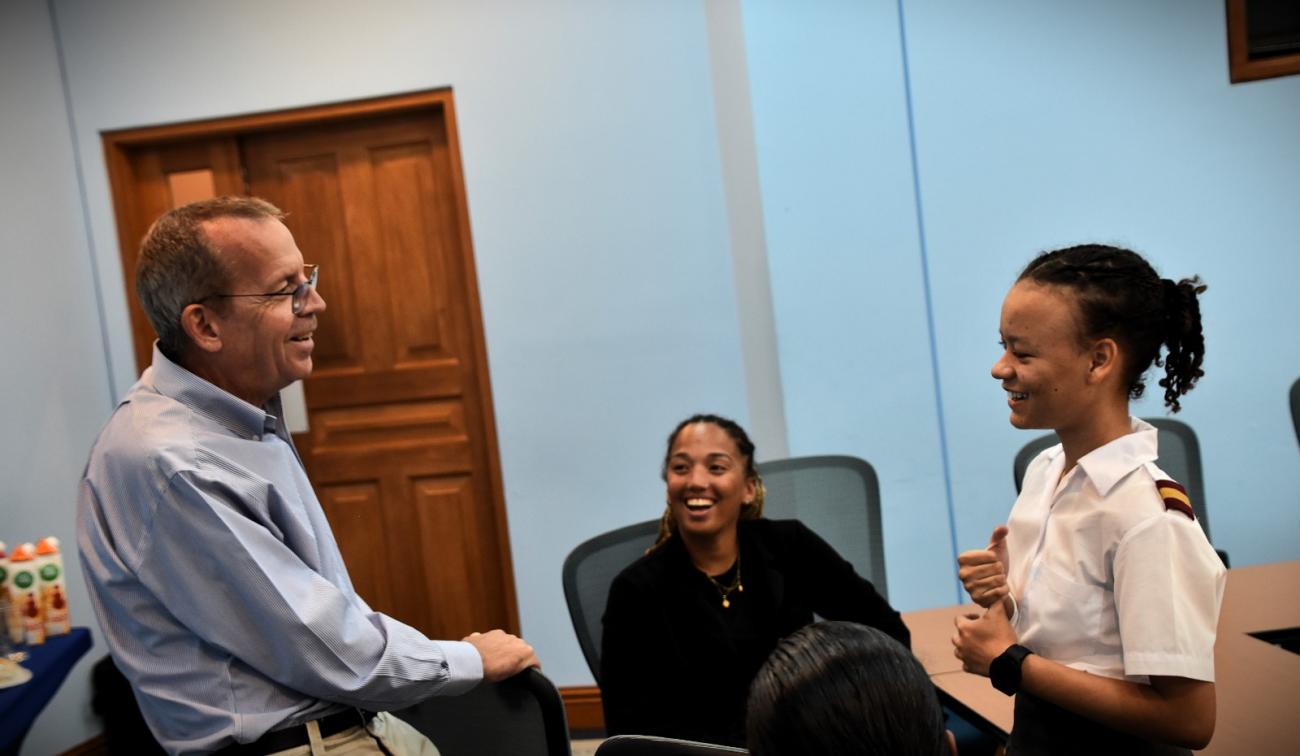
When Hurricane Beryl tore through the Eastern Caribbean in 2024, UN Resident Coordinator Simon Springett was on the ground listening to families who had lost everything; then helping mobilize international support for urgent relief. A few weeks later, he was side by side with young climate activists in Barbados, calling their energy “unstoppable.” Since becoming UN Resident Coordinator for the Multi-country Office in Barbados and the Eastern Caribbean in June 2024, his work has carried him from policy rooms to peace walks, always with one motivation: keeping people at the center of the UN’s mission. Learn about his experience in this dynamic interview*:
What drives you in your role as the UN Resident Coordinator?
The UN Resident Coordinator (RC), representing the Secretary-General, is the highest representative of the UN development system at the country level, focusing on coordination and bringing the expertise of diverse UN entities to tackle national priorities. What could be more rewarding than partnering with governments to improve life for communities? Without sustainable development, peace and security are difficult to achieve.
It’s a truly motivating job—one day you’re engaging with the International Maritime Organisation, the next with UNIDO on industrial policy, and another day in a school discussing curriculum reforms with UNICEF.
Choosing the UN is more than just a career path, it’s a moral and values-driven decision. With that in the back of your mind (and in the front of your heart), it’s impossible not to smile when you come to work. You have the opportunity to contribute to making a difference tomorrow. Some things take time and everything builds momentum, so it’s a fabulous opportunity to bein this office every day.
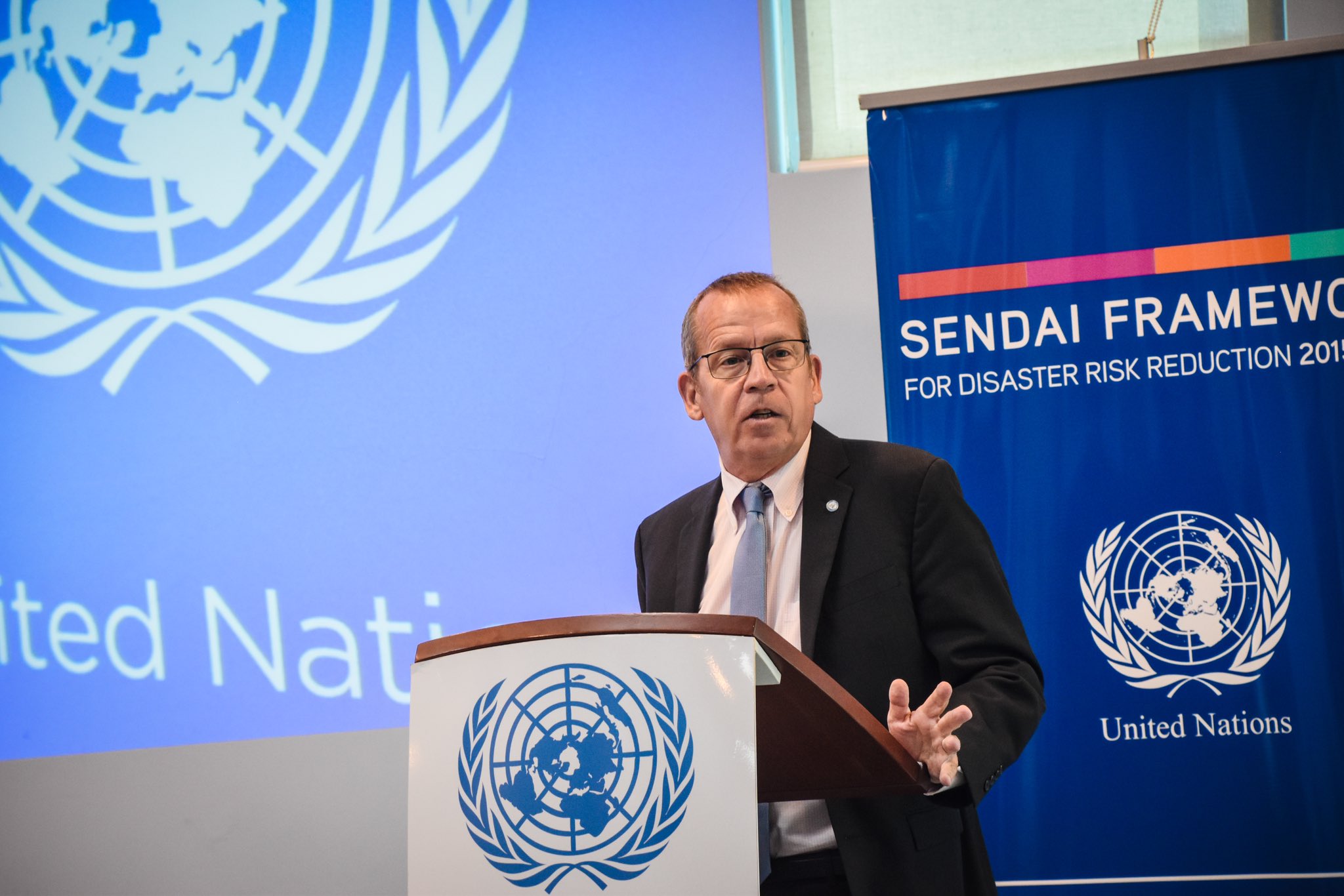
What would you say is unique about your role in leading a Multi-country Office?
This Multi-Country Office covers seven small states and three UK overseas territories with varying income and development levels. The challenge? Balancing regional strategy while addressing each country’s needs.
Serving in 10 small island developing countries has shown how countries can come together to work collectively to benefit multiple countries at once. Sustainable development knows no boundaries, everyone has the same needs and aspirations, and working together is one way to achieve our collective goals.
The UN House in Barbados, generously donated by the government, symbolizes commitment to multilateralism. Barbados is a vibrant Caribbean hub with an ambitious global outlook. Walking in, you feel the passion and the joy. It is also our ‘home.’ Here, we invite diplomats, development partners, NGOs, private sector, academia and governments for constructive conversations in a welcoming space —something deeply valued in the Caribbean.
With over 340 staff across the region, the UN House is a hub for 23 UN entities supporting the Eastern Caribbean. This proximity enhances coordination, reduces duplication, and boosts efficiency.
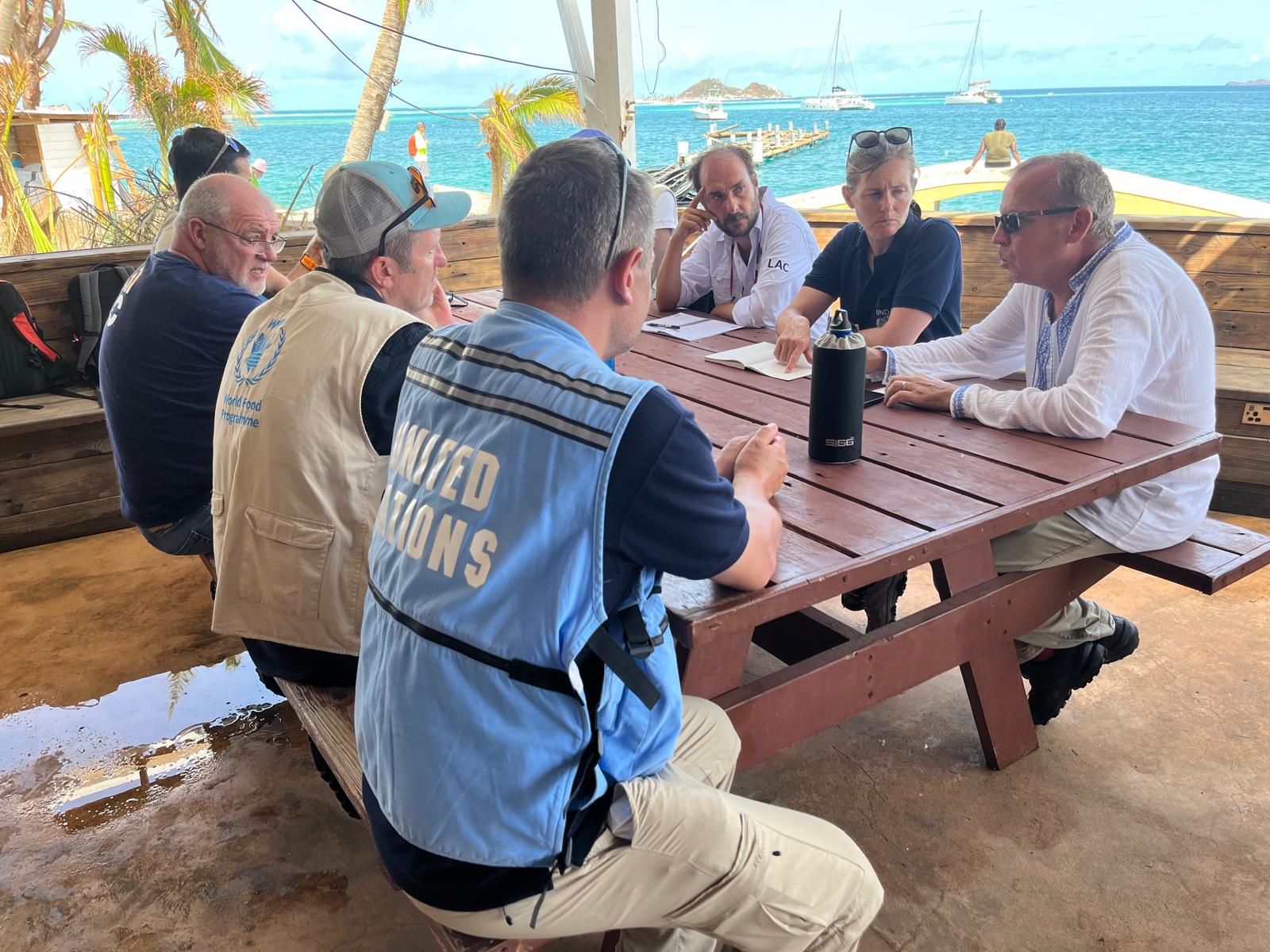
What are some economic challenges specific to the Eastern Caribbean?
Communities in Small Island Developing States have unique obstacles. Despite their size, they face the same governance and development challenges as larger nations. Small civil service, brain drain, high external debt, and capacity gaps challenge sustainable development ambitions. The challenges are complex, especially trying to deliver the scale required at a regional level to make immediate and tangible impacts on people's lives.
In response, the UN focuses on offering cohesive high-quality policy support and creating opportunities for innovative development financing. We act as a connector, helping countries engage private investors or multilateral development banks, and working to de-risk investments. In Barbados, for example, the UN Office for Project Services (UNOPS) manages the renovation of Queen Elizabeth Hospital (funded by the European Investment Bank) while ensuring skills in project management and procurement are transferred to government and hospital staff.
The Eastern Caribbean region is also particularly prone to climate impacts and extreme weather incidents. In your role as UN Resident Coordinator and working with UN entities, how do you straddle the dual issues of disaster response and risk reduction with the long-term vision of sustainable development?
Going into Hurricane season is always stressful. As the old saying goes, it is not if a disaster will occur, but when?
I am fortunate to co-chair a Caribbean coordination structure with the Caribbean Community (CARICOM) Disaster and Emergency Management Agency (CDEMA) that focuses on preparedness and response. Helping consolidate the UN’s and partners’ expertise on both, immediate humanitarian needs and long-term resilience, , is a very natural space for the Resident Coordinator to occupy.
The way authorities, the UN and civil society came together after the devastating impact of Hurricane Beryl 2024 underscores the urgent need for solutions for of these issues, We continue to advocate for greater international support for climate change adaptation and mitigation in the Caribbean.
Sustainable development is strengthened by risk reduction and investments in resilience, both systems and infrastructure,. For example, this means incorporating risk informed, climate-resilient measures into infrastructure projects, promoting sustainable livelihoods, and strengthening early warning systems and disaster preparedness.
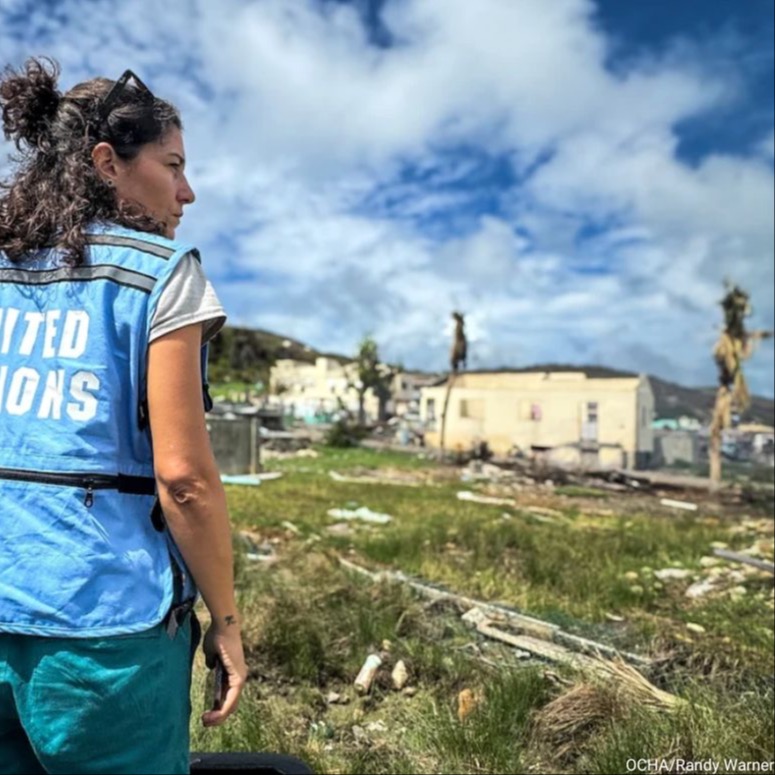
At a time when multilateralism is under pressure, what is the UN’s added value?
One of the UN’s greatest strengths is that all stakeholders respect and trust us because of our convening power, institutional knowledge, capacities, staff and skills. Our focus is not just on efficiency but on inclusion—always asking: will the elderly, marginalized, and or rural communities benefit from this service? If not, how can we fix it? This human-centered approach is core to our DNA.
Our long-term, inclusive mindset is what sets us apart; ensuring no one is left behind. Another key value we bring is in capacity-building, which is non-negotiable. If a programme doesn’t strengthen local systems and skills, it needs to be redesigned.
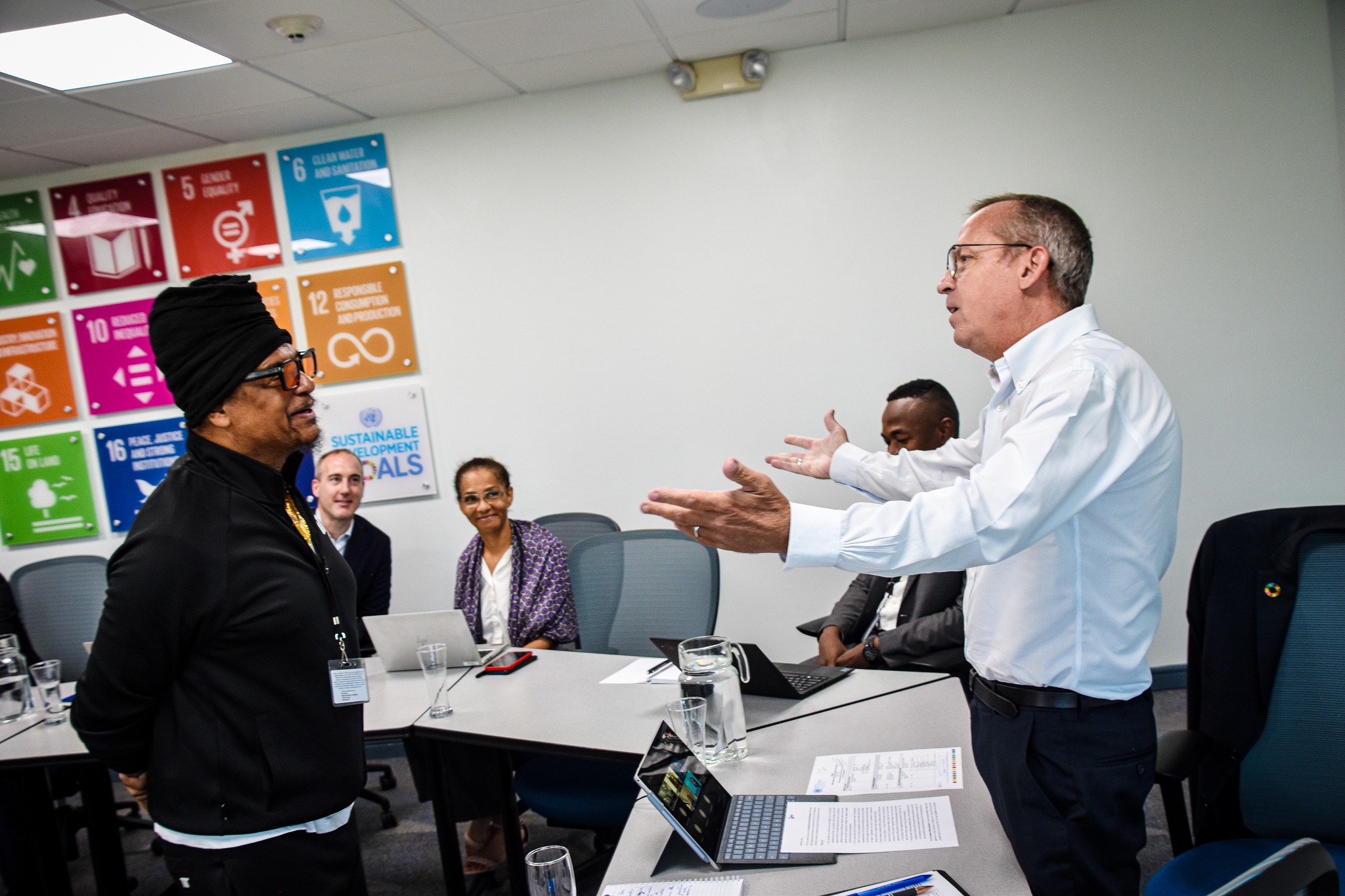
With 5 years to 2030, how do you see the Sustainable Development Goals being important to peoples' lives in Barbados and the Eastern Caribbean?
Ultimately, the Sustainable Development Goals are about making the lives of individuals, families, and communities better, while also working to preserve and protect the natural environment. Achieving these goals is of paramount importance to everyone, regardless of where you live, but particularly small island states with their specific challenges.
As a result, the SDGs have become a unifying agenda across the Caribbean, which serves to foster collaboration across governments, UN agencies, and civil society.
We need to recommit to investments and programmes that focus on economic, climate, and social resilience. Programmes that keep families and communities at the top of the agenda and foster broader partnerships. The Resident Coordinator’s role here is to really ensure that we all pull in the same direction towards a common vision, this goalpost of 2030 and I am proud to be a champion for these efforts in the Caribbean.
*This article has been adapted from an interview published earlier by UN Today. Read the original article here.













